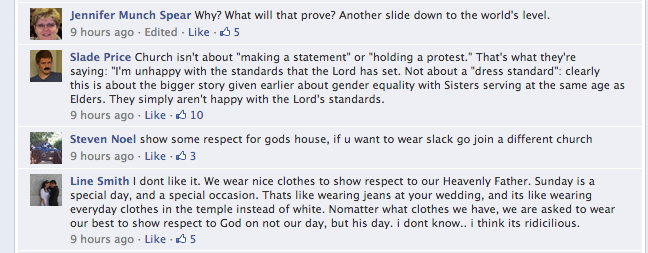There’s no point in bringing up the gun massacre at Sandy Hook again, since any meaningful action on gun control was forgotten just in time for Christmas.
But it wouldn’t be a tragedy without theists trying to explain where their god was during the tragedy. Don’t know why they bother; the Christian god was responsible for plenty of tragedy on his own. But anyway, here’s John Hawkins from ClownHall.com to explain the mysterious ways of the Lord to us.
1) He gives us free will: God didn’t make robots who were designed to execute His will. Instead He gave us the freedom to make our own decisions.
Okay, so the shooter had free will. But what about the free will of those kids not to be killed? Doesn’t their free will count? Why is the shooter the only one whose free will is respected?
2) It’s a necessity for faith: If God wanted to remove all doubt about his existence, He could do so — but, He doesn’t because the cornerstone of Christianity is faith.
Translation: God could provide good evidence for his existence, but won’t. Instead, he expects us to believe in him based on bad evidence… and will judge the ones who sensibly refuse. Doesn’t sound quite just, does it?
And why is faith the one thing that this god wants? That’s simple. God requires everyone’s belief because without belief, gods die.
The next one isn’t very coherent, so I’ll just paste it all.
3) He has a different perspective: Our God gave “His only begotten Son, that whosoever believeth in Him should not perish, but have everlasting life.” Imagine being in his place as Jesus was jeered, whipped and had to suffer and die in agony on the cross. What would run through your mind as your Son was crucified and uttered the words, “My God, My God, why have you forsaken me?” when you had the power to free Him, heal His wounds and strike down His tormentors at will. Our God made that sacrifice for each and every one of us so that we could be saved.
So… human suffering doesn’t matter because Jesus had to suffer for a weekend, which made everything all right in the long run. Clear?
4) We often turn to God in times of tragedy: One of the sad truths of human nature is that when we’re happy, healthy, loved, secure and our pockets are full, most of us think we already have all the answers and don’t turn to God.
Translation: God just wants us to love him and turn to him. And if he doesn’t get the love, then things might start going wrong, see?
5) Ultimately it’s about Heaven, not earth
Right now, those murdered kids are having ice cream in heaven. (Unless they’re not.) It just puts the multiple bullet wounds and final fearful moments into perspective, doesn’t it?
This list is not so much an explanation of why God lets evil happen. It’s more like a list of unbelievably callous justifications for an omnipotent god’s seeming indifference to human suffering. It would be much kinder to this god to allow that he can’t act to prevent suffering because he doesn’t exist.


Recent Comments